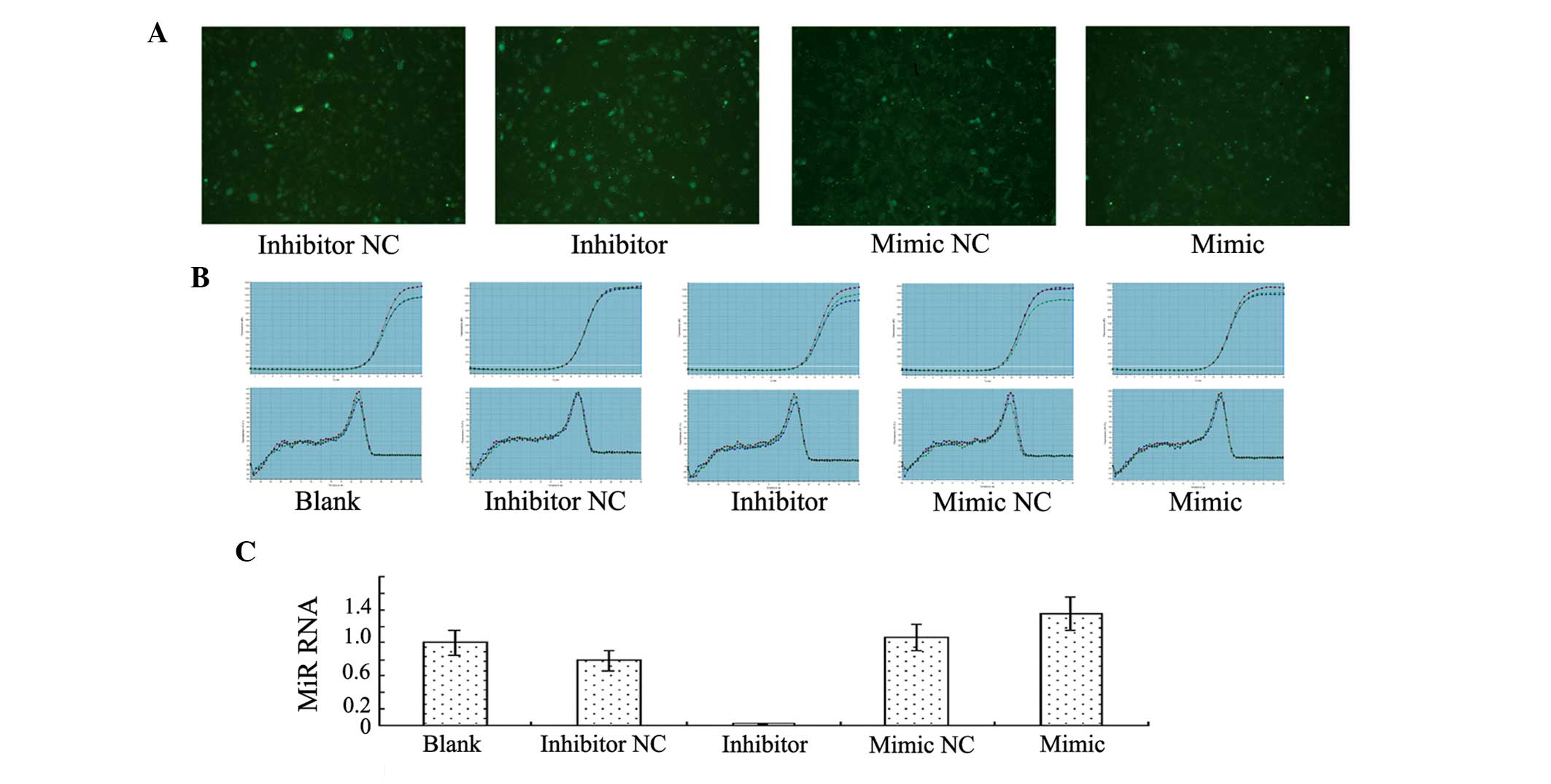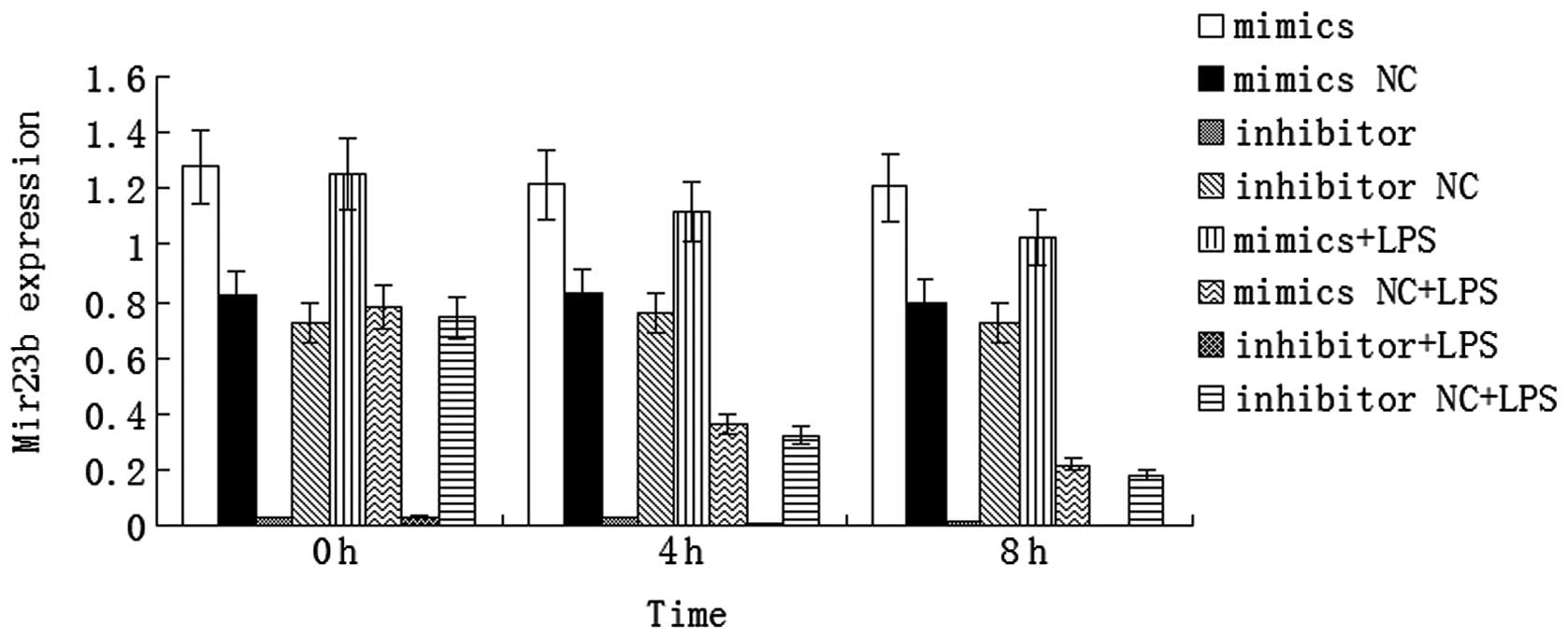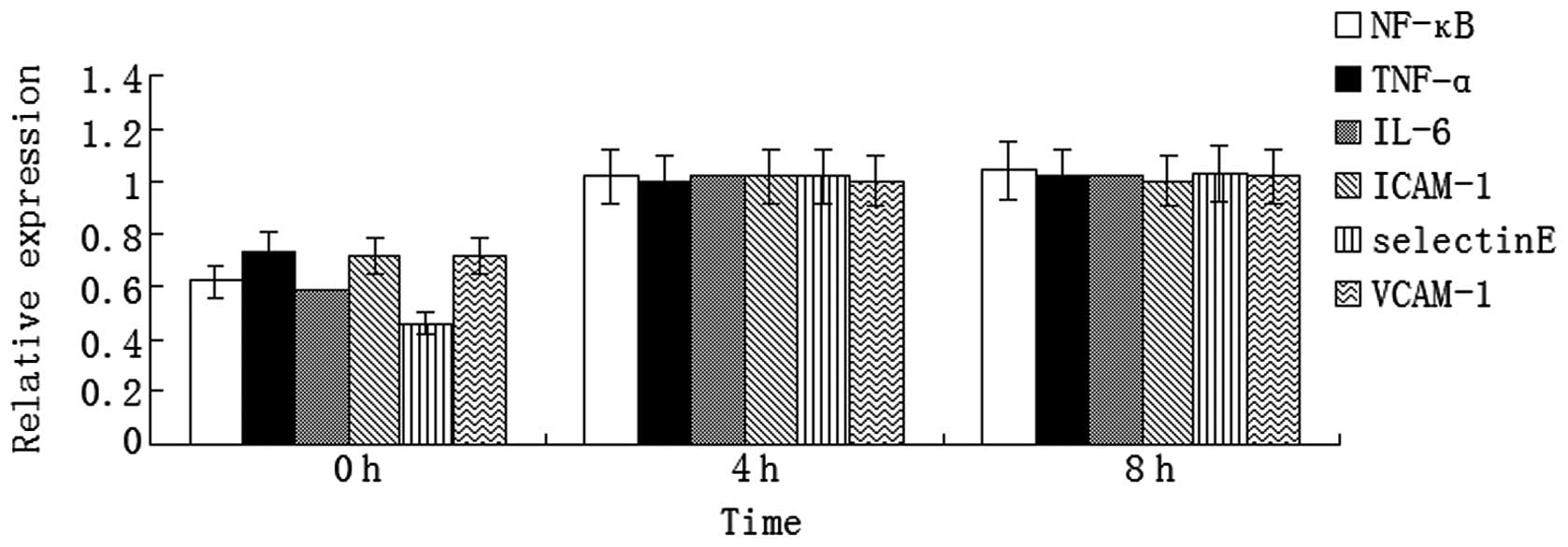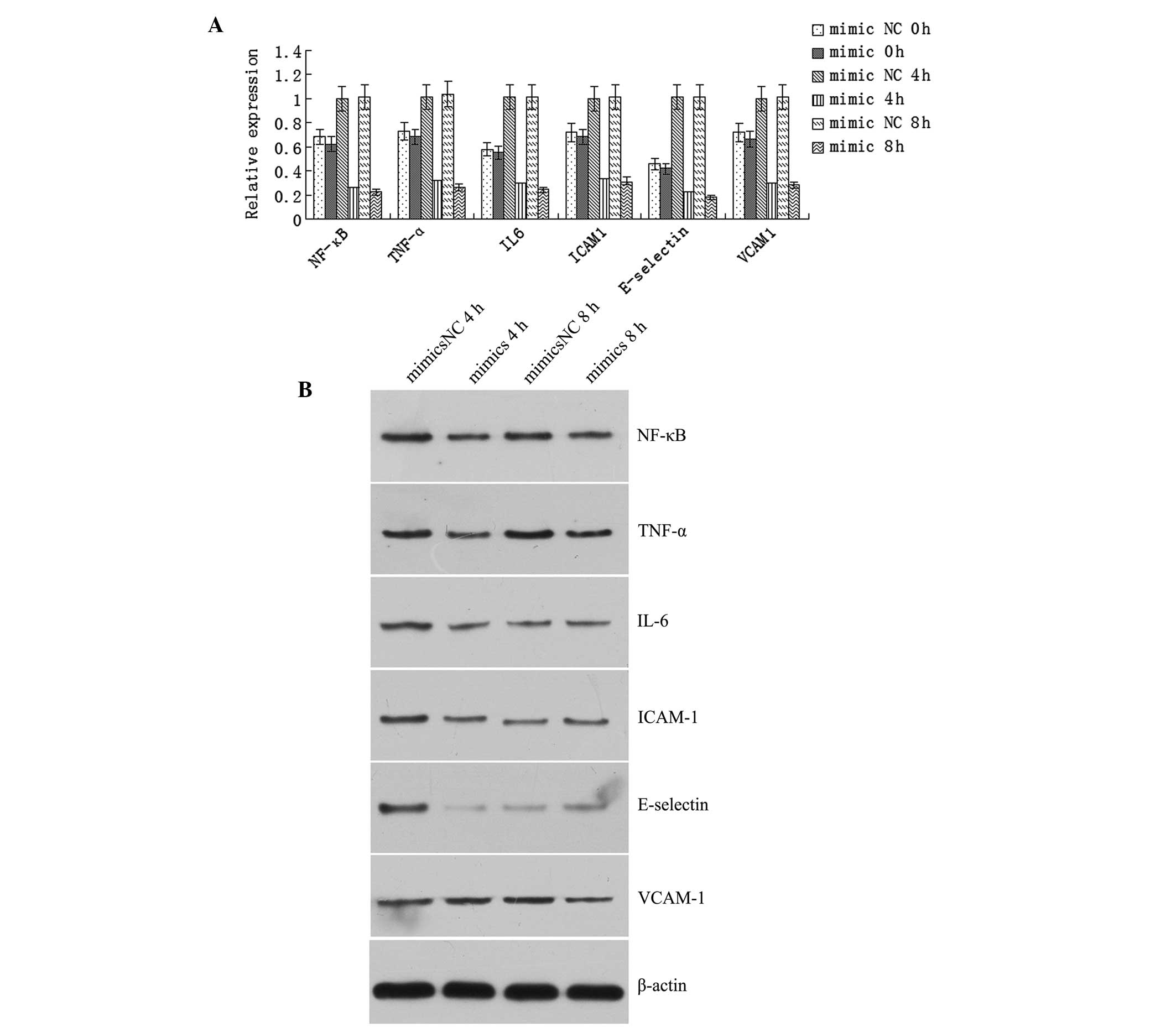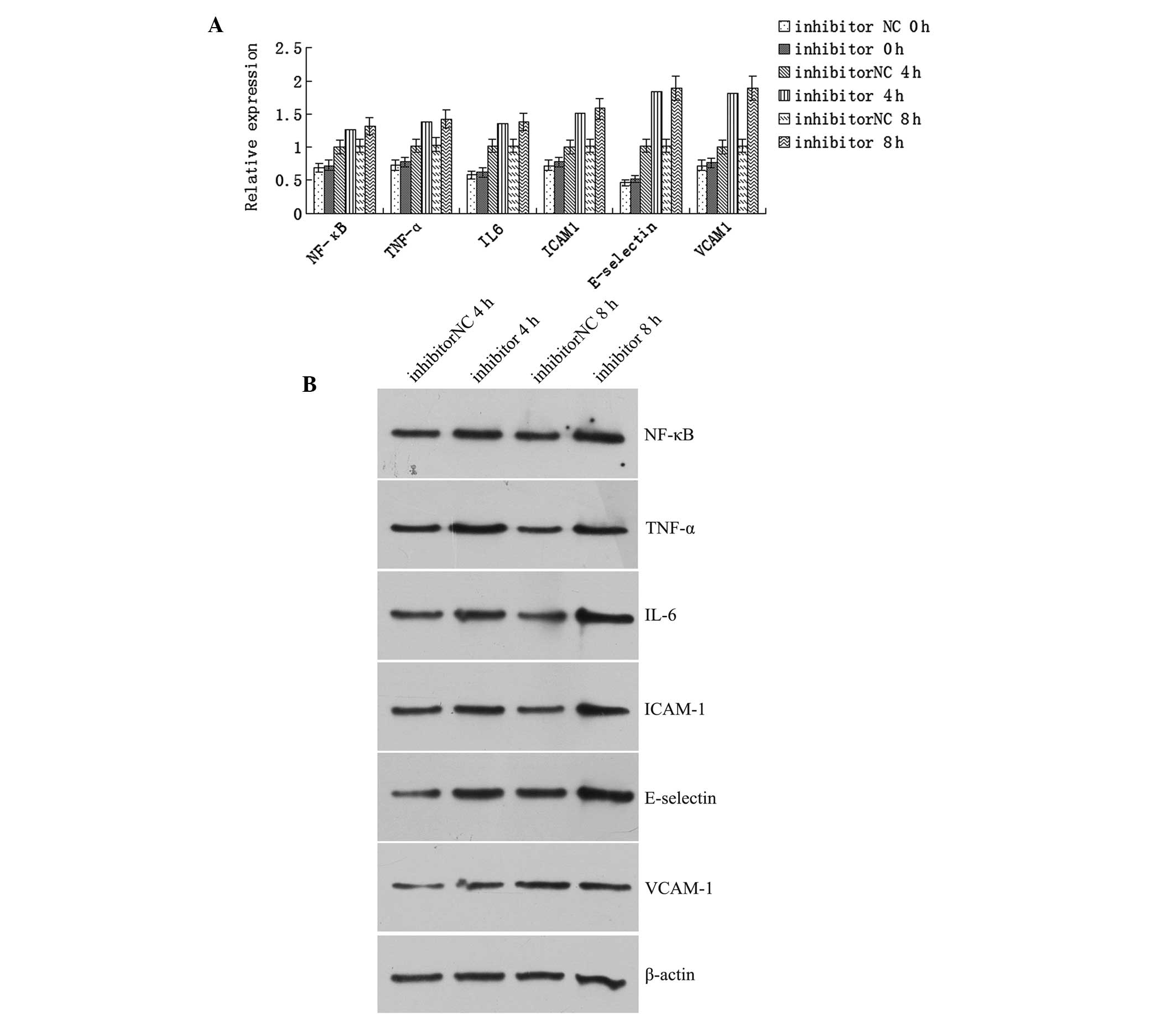|
1
|
Dirkes S: Sepsis and inflammation: impact
on acute kidney injury. Nephrol Nurs J. 40:125–133. 2013.PubMed/NCBI
|
|
2
|
Gomez H, Ince C, De Backer D, et al: A
unified theory of sepsis-induced acute kidney injury: inflammation,
microcirculatory dysfunction, bioenergetics and the tubular cell
adaptation to injury. Shock. 41:3–11. 2014. View Article : Google Scholar :
|
|
3
|
Pinheiro da Silva F, Machado MC and
Velasco IT: Neuropeptides in sepsis: from brain pathology to
systemic inflammation. Peptides. 44:135–138. 2013. View Article : Google Scholar : PubMed/NCBI
|
|
4
|
Lewis DH, Chan DL, Pinheiro D,
Armitage-Chan E and Garden OA: The immunopathology of sepsis:
pathogen recognition, systemic inflammation, the compensatory
anti-inflammatory response and regulatory T cells. J Vet Intern
Med. 26:457–482. 2012. View Article : Google Scholar : PubMed/NCBI
|
|
5
|
Hernandez MR, Palomo M, Fuste B, et al:
Effect of two different dialysis membranes on leukocyte adhesion
and aggregation. Nephron Clin Pract. 106:c1–c8. 2007.PubMed/NCBI
|
|
6
|
Rodella LF, Favero G, Foglio E, et al:
Vascular endothelial cells and dysfunctions: role of melatonin.
Front Biosci (Elite Ed). 5:119–129. 2013.
|
|
7
|
Zhang ZD and Ma XC: Injury of vascular
endothelial cell and microcirculation disturbance in sepsis.
Zhongguo Wei Zhong Bing Ji Jiu Yi Xue. 23:125–128. 2011.(In
Chinese). PubMed/NCBI
|
|
8
|
Li M and Yu YH: Vascular endothelial cell
dysfunction and its clinical strategy in severe sepsis. Zhonghua Er
Ke Za Zhi. 49:603–606. 2011.(In Chinese). PubMed/NCBI
|
|
9
|
Adamzik M, Schäfer S, Frey UH, et al: The
NFKB1 promoter polymorphism (−94ins/delATTG) alters nuclear
translocation of NF-κB1 in monocytes after lipopolysaccharide
stimulation and is associated with increased mortality in sepsis.
Anesthesiology. 118:123–133. 2013. View Article : Google Scholar
|
|
10
|
Raspé C, Höcherl K, Rath S, Sauvant C and
Bucher M: NF-κB-mediated inverse regulation of fractalkine and
CX3CR1 during CLP-induced sepsis. Cytokine. 61:97–103. 2013.
View Article : Google Scholar
|
|
11
|
Kaplan J, Nowell M, Chima R and Zingarelli
B: Pioglitazone reduces inflammation through inhibition of NF-κB in
polymicrobial sepsis. Innate Immun. 20:519–528. 2013. View Article : Google Scholar : PubMed/NCBI
|
|
12
|
Li H, Han W, Polosukhin V, et al: NF-κB
inhibition after cecal ligation and puncture reduces
sepsis-associated lung injury without altering bacterial host
defense. Mediators Inflamm. 2013:5032132013.
|
|
13
|
Lenkala D, LaCroix B, Gamazon ER, Geeleher
P, Im HK and Huang RS: The impact of microRNA expression on
cellular proliferation. Hum Genet. 133:931–938. 2014. View Article : Google Scholar : PubMed/NCBI
|
|
14
|
Dvinge H, Git A, Gräf S, et al: The
shaping and functional consequences of the microRNA landscape in
breast cancer. Nature. 497:378–382. 2013. View Article : Google Scholar : PubMed/NCBI
|
|
15
|
Melton C, Judson RL and Blelloch R:
Opposing microRNA families regulate self-renewal in mouse embryonic
stem cells. Nature. 463:621–626. 2010. View Article : Google Scholar : PubMed/NCBI
|
|
16
|
Li W, Liu Z, Chen L, Zhou L and Yao Y:
MicroRNA-23b is an independent prognostic marker and suppresses
ovarian cancer progression by targeting runt-related transcription
factor-2. FEBS Lett. 588:1608–1615. 2014. View Article : Google Scholar : PubMed/NCBI
|
|
17
|
Pellegrino L, Krell J, Roca-Alonso L,
Stebbing J and Castellano L: MicroRNA-23b regulates cellular
architecture and impairs motogenic and invasive phenotypes during
cancer progression. Bioarchitecture. 3:119–124. 2013. View Article : Google Scholar : PubMed/NCBI
|
|
18
|
Donadelli M and Palmieri M: Roles for
microRNA 23b in regulating autophagy and development of pancreatic
adenocarcinoma. Gastroenterology. 145:936–938. 2013. View Article : Google Scholar : PubMed/NCBI
|
|
19
|
Ishteiwy RA, Ward TM, Dykxhoorn DM and
Burnstein KL: The microRNA -23b/-27b cluster suppresses the
metastatic phenotype of castration-resistant prostate cancer cells.
PLoS One. 7:e521062012. View Article : Google Scholar
|
|
20
|
Au Yeung CL, Tsang TY, Yau PL and Kwok TT:
Human papillomavirus type 16 E6 induces cervical cancer cell
migration through the p53/microRNA-23b/urokinase-type plasminogen
activator pathway. Oncogene. 30:2401–2410. 2011. View Article : Google Scholar : PubMed/NCBI
|
|
21
|
Wang KC, Garmire LX, Young A, et al: Role
of microRNA-23b in flow-regulation of Rb phosphorylation and
endothelial cell growth. Proc Natl Acad Sci USA. 107:3234–3239.
2010. View Article : Google Scholar : PubMed/NCBI
|
|
22
|
Pellegrino L, Stebbing J, Braga VM, et al:
miR-23b regulates cytoskeletal remodeling, motility and metastasis
by directly targeting multiple transcripts. Nucleic Acids Res.
41:5400–5412. 2013. View Article : Google Scholar : PubMed/NCBI
|
|
23
|
Loftus JC, Ross JT, Paquette KM, et al:
miRNA expression profiling in migrating glioblastoma cells:
regulation of cell migration and invasion by miR-23b via targeting
of Pyk2. PLoS One. 7:e398182012. View Article : Google Scholar : PubMed/NCBI
|
|
24
|
Chen L, Han L, Zhang K, et al: VHL
regulates the effects of miR-23b on glioma survival and invasion
via suppression of HIF-1α/VEGF and β-catenin/Tcf-4 signaling. Neuro
Oncol. 14:1026–1036. 2012. View Article : Google Scholar : PubMed/NCBI
|
|
25
|
Zhu S, Pan W, Song X, et al: The microRNA
miR-23b suppresses IL-17-associated autoimmune inflammation by
targeting TAB2, TAB3 and IKK-α. Nat Med. 18:1077–1086. 2012.
View Article : Google Scholar : PubMed/NCBI
|
|
26
|
Hu R and O’Connell RM: MiR-23b is a
safeguard against autoimmunity. Nat Med. 18:1009–1010. 2012.
View Article : Google Scholar : PubMed/NCBI
|
|
27
|
Duran-Bedolla J, Montes de Oca-Sandval MA,
Saldaña-Navor V, et al: Sepsis, mitochondrial failure and multiple
organ dysfunction. Clin Invest Med. 37:E58–E69. 2014.PubMed/NCBI
|
|
28
|
Stearns-Kurosawa DJ, Osuchowski MF,
Valentine C, Kurosawa S and Remick DG: The pathogenesis of sepsis.
Annu Rev Pathol. 6:19–48. 2011. View Article : Google Scholar
|
|
29
|
Brümmer A and Hausser J: MicroRNA binding
sites in the coding region of mRNAs: extending the repertoire of
post-transcriptional gene regulation. Bioessays. 36:617–626. 2014.
View Article : Google Scholar : PubMed/NCBI
|
|
30
|
Tarang S and Weston MD: Macros in microRNA
target identification: a comparative analysis of in silico, in
vitro and in vivo approaches to microRNA target identification. RNA
Biol. 11:324–333. 2014. View Article : Google Scholar : PubMed/NCBI
|
|
31
|
Bartel DP: MicroRNAs: genomics,
biogenesis, mechanism and function. Cell. 116:281–297. 2004.
View Article : Google Scholar : PubMed/NCBI
|
|
32
|
Jernås M, Malmeström C, Axelsson M, et al:
MicroRNA regulate immune pathways in T-cells in multiple sclerosis
(MS). BMC Immunol. 14:322013. View Article : Google Scholar : PubMed/NCBI
|
|
33
|
Li YC, Chen Y, Liu W and Thadhani R:
MicroRNA-mediated mechanism of vitamin D regulation of innate
immune response. J Steroid Biochem Mol Biol. 144:81–86. 2014.
View Article : Google Scholar
|
|
34
|
Chen CZ, Schaffert S, Fragoso R and Loh C:
Regulation of immune responses and tolerance: the microRNA
perspective. Immunol Rev. 253:112–128. 2013. View Article : Google Scholar : PubMed/NCBI
|
|
35
|
Lourenço AP, Guidugli-Lazzarini KR,
Freitas FC, Bitondi MM and Simões ZL: Bacterial infection activates
the immune system response and dysregulates microRNA expression in
honey bees. Insect Biochem Mol Biol. 43:474–482. 2013. View Article : Google Scholar : PubMed/NCBI
|
|
36
|
Jernås M, Nookaew I, Wadenvik H and Olsson
B: MicroRNA regulate immunological pathways in T-cells in immune
thrombocytopenia (ITP). Blood. 121:2095–2098. 2013. View Article : Google Scholar : PubMed/NCBI
|
|
37
|
Zhou R, O’Hara SP and Chen XM: MicroRNA
regulation of innate immune responses in epithelial cells. Cell Mol
Immunol. 8:371–379. 2011. View Article : Google Scholar : PubMed/NCBI
|
|
38
|
Du LL and Ma ZF: MicroRNA and immune
response, and sepsis. Zhongguo Wei Zhong Bing Ji Jiu Yi Xue.
21:501–503. 2009.(In Chinese). PubMed/NCBI
|
|
39
|
Zhang ZD and Ma XC: Injury of vascular
endothelial cell and microcirculation disturbance in sepsis.
Zhongguo Wei Zhong Bing Ji Jiu Yi Xue. 23:125–128. 2011.(In
Chinese). PubMed/NCBI
|
|
40
|
Li M and Yu YH: Vascular endothelial cell
dysfunction and its clinical strategy in severe sepsis. Zhonghua Er
Ke Za Zhi. 49:603–606. 2011.(In Chinese). PubMed/NCBI
|
|
41
|
Herwig MC, Tsokos M, Hermanns MI,
Kirkpatrick CJ and Müller AM: Vascular endothelial cadherin
expression in lung specimens of patients with sepsis-induced acute
respiratory distress syndrome and endothelial cell cultures.
Pathobiology. 80:245–251. 2013. View Article : Google Scholar : PubMed/NCBI
|
|
42
|
Anand AR, Bradley R and Ganju RK:
LPS-induced MCP-1 expression in human microvascular endothelial
cells is mediated by the tyrosine kinase, Pyk2 via the p38
MAPK/NF-kappaB-dependent pathway. Mol Immunol. 46:962–968. 2009.
View Article : Google Scholar :
|
|
43
|
Chen L, Zhang K, Shi Z, et al: A
lentivirus-mediated miR-23b sponge diminishes the malignant
phenotype of glioma cells in vitro and in vivo. Oncol Rep.
31:1573–1580. 2014.PubMed/NCBI
|
|
44
|
Zaman MS, Thamminana S, Shahryari V, et
al: Inhibition of PTEN gene expression by oncogenic miR-23b-3p in
renal cancer. PLoS One. 7:e502032012. View Article : Google Scholar : PubMed/NCBI
|
|
45
|
Geng J, Luo H, Pu Y, et al: Methylation
mediated silencing of miR-23b expression and its role in glioma
stem cells. Neurosci Lett. 528:185–189. 2012. View Article : Google Scholar : PubMed/NCBI
|
|
46
|
Leone V, Langella C, D’Angelo D, et al:
MiR-23b and miR-130b expression is downregulated in pituitary
adenomas. Mol Cell Endocrinol. 390:1–7. 2014. View Article : Google Scholar : PubMed/NCBI
|
|
47
|
Majid S, Dar AA, Saini S, et al: mir-23b
represses proto-oncogene Src kinase and functions as
methylation-silenced tumor suppressor with diagnostic and
prognostic significance in prostate cancer. Cancer Res.
72:6435–6446. 2012. View Article : Google Scholar : PubMed/NCBI
|
|
48
|
Jin L, Wessely O, Marcusson EG, et al:
Prooncogenic factors miR-23b and miR-27b are regulated by Her2/Neu,
EGF and TNF-α in breast cancer. Cancer Res. 73:2884–2896. 2013.
View Article : Google Scholar : PubMed/NCBI
|
|
49
|
Pellegrino L, Stebbing J, Braga VM, et al:
miR-23b regulates cytoskeletal remodeling, motility and metastasis
by directly targeting multiple transcripts. Nucleic Acids Res.
41:5400–5412. 2013. View Article : Google Scholar : PubMed/NCBI
|
|
50
|
Hu R and O’Connell RM: MiR-23b is a
safeguard against autoimmunity. Nat Med. 18:1009–1010. 2012.
View Article : Google Scholar : PubMed/NCBI
|
|
51
|
Ouda R, Onomoto K, Takahasi K, et al:
Retinoic acid-inducible gene I-inducible miR-23b inhibits
infections by minor group rhinoviruses through down-regulation of
the very low density lipoprotein receptor. J Biol Chem.
286:26210–26219. 2011. View Article : Google Scholar : PubMed/NCBI
|
|
52
|
Wu Y, Li C, He Y, et al: Relationship
between expression of microRNA and inflammatory cytokines plasma
level in pediatric patients with sepsis. Zhonghua Er Ke Za Zhi.
52:28–33. 2014.(In Chinese). PubMed/NCBI
|
|
53
|
Chen W, Zhao L, Niu S, et al: The
diagnostic value of different pro-inflammatory factor in early
diagnosis of sepsis in patients with bloodstream infection.
Zhonghua Wei Zhong Bing Ji Jiu Yi Xue. 26:165–170. 2014.(In
Chinese). PubMed/NCBI
|
|
54
|
Brown MA and Jones WK: NF-kappaB action in
sepsis: the innate immune system and the heart. Front Biosci.
9:1201–1217. 2004. View
Article : Google Scholar : PubMed/NCBI
|
|
55
|
Thair S and Russell JA: Noncanonical
nuclear factor kappaB (NF-κB) signaling and potential for
therapeutics in sepsis. Curr Infect Dis Rep. 15:364–371. 2013.
View Article : Google Scholar : PubMed/NCBI
|
|
56
|
Liang Y, Li X, Zhang X, et al: Elevated
levels of plasma TNF-α are associated with microvascular
endothelial dysfunction in patients with sepsis through activating
the NF-kB and p38 mitogen-activated protein kinase in endothelial
cells. Shock. 41:275–281. 2014. View Article : Google Scholar : PubMed/NCBI
|
|
57
|
Song R, Kim J, Yu D, Park C and Park J:
Kinetics of IL-6 and TNF-α changes in a canine model of sepsis
induced by endotoxin. Vet Immunol Immunopathol. 146:143–149. 2012.
View Article : Google Scholar : PubMed/NCBI
|
|
58
|
Shahkar L, Keshtkar A, Mirfazeli A, Ahani
A and Roshandel G: The role of IL-6 for predicting neonatal sepsis:
a systematic review and meta-analysis. Iran J Pediatr. 21:411–417.
2011.
|
|
59
|
Hildebrand F, Pape HC, Harwood P, et al:
Role of adhesion molecule ICAM in the pathogenesis of polymicrobial
sepsis. Exp Toxicol Pathol. 56:281–290. 2005. View Article : Google Scholar : PubMed/NCBI
|
|
60
|
Figueras-Aloy J, Gómez-López L,
Rodríguez-Miguélez JM, et al: Serum soluble ICAM-1, VCAM-1,
L-selectin, and P-selectin levels as markers of infection and their
relation to clinical severity in neonatal sepsis. Am J Perinatol.
24:331–338. 2007. View Article : Google Scholar : PubMed/NCBI
|
|
61
|
Zaki Mel-S and el-Sayed H: Evaluation of
microbiologic and hematologic parameters and E-selectin as early
predictors for outcome of neonatal sepsis. Arch Pathol Lab Med.
133:1291–1296. 2009.
|















